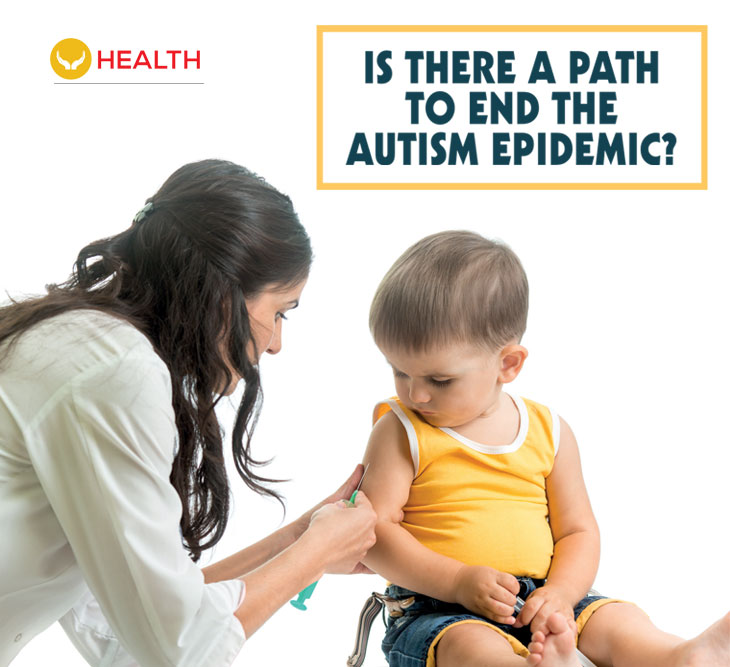Between the ongoing debate about the possible link between autism and vaccinations, J.B. Handley, the father of a child with autism and Author of the book ‘How to End the Autism Epidemic’, suggests a promising middle-ground solution for this growing epidemic.
TWO SIDES OF THE DEBATE
On one side of the debate are parents who believe that today’s high number of mandatory vaccinations (children in the 1960s received three vaccinations, today’s children receive 38) can trigger autism in vulnerable children. On the other side are health officials who deny any link. Handley points out that there is a wealth of relevant scientific studies that prove hat autism prevalence has skyrocketed in the United States. “And since 2004, there have been 11 groundbreaking discoveries in separate, but related scientific fields that, taken together, reveal one
of the causes of autism,” he tells. “Because of this new, published science, we now know that autism is created by immune activation events in the brain during critical phases of brain development, typically by the time a child is 36-months-old, and that these immune activation events in the brain can be triggered by the aluminum adjuvant in vaccines.”
VACCINE SCHEDULE
The Center for Disease Control and Prevention noted that the rates for autism in children went from 1 in 150 children in 2000 to 1 in 36 children in 2017. Handley says returning to the vaccine schedule used in the mid-1980s provides a moderate solution. He also believes that there should be thorough screening before any vaccines are given to determine which children are at-risk from serious vaccine injury. “We have the capacity to systematically assess the children who are more vulnerable before they receive a vaccine. I’m not against all vaccinations all the time. But more screening to spare at-risk infants would be a positive step in the right direction, and it’s something that could be achieved today,” he elaborates.
Handley believes the following steps should be taken: Screening vulnerable children should be implemented immediately. Some vulnerabilities are because of genetics, parental health histories of autoimmunity, and other children have problems that are apparent with a physical exam. Children who may have adverse reactions to vaccines also frequently have such conditions as ear infections, dark circles under the eyes, and eczema. Test children before giving booster shots. Booster shots are provided for most vaccines. Handley believes many of these shots are unnecessary, as immunity has already been accomplished through the initial vaccine. A simple blood test would reveal if a booster shot is really necessary, he says. Establish clear rules for when a child should not receive vaccinations. A child should not be vaccinated when he/she is sick, has eczema, is taking antibiotics, and several other conditions.



